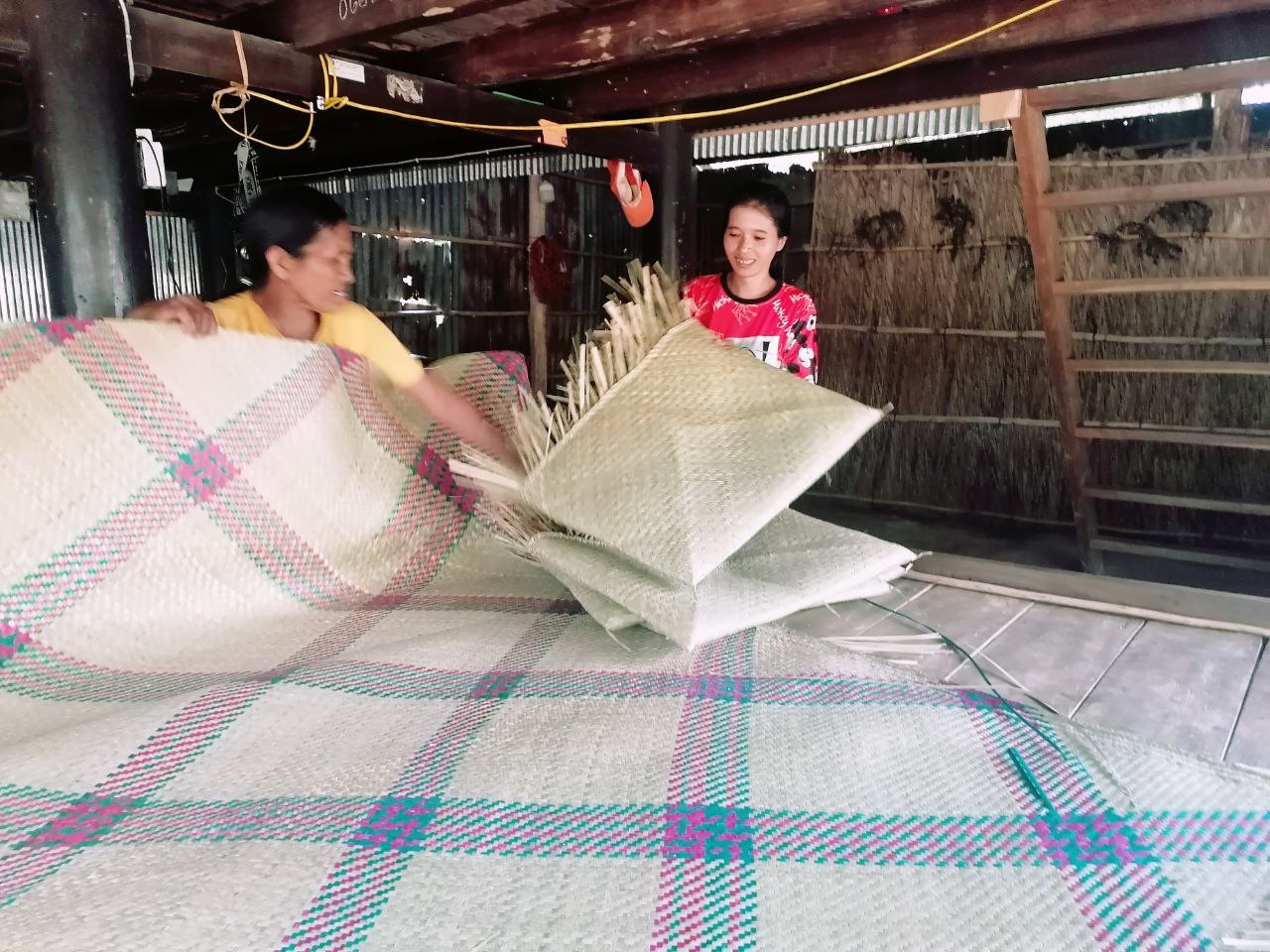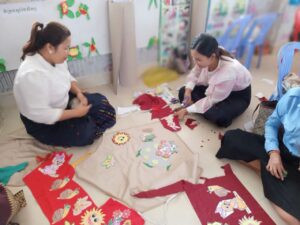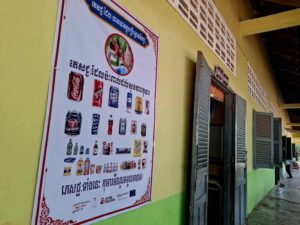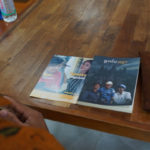Straw mats have a rich history rooted in the Angkorian times. Today, craftswomen in Kampot are preserving Khmer traditional weaving skills. They want and deserve to be the leaders of the global eco-trends! Some of them received a co-impact investment fund to buy materials so they could craft eco-friendly and bio-degradable mats and bags, launch their business at home, and make an income. This project supporting Cambodian women is part of CO-SAVED, which is co-funded by the EU and led by Action Education (Aide et Action).
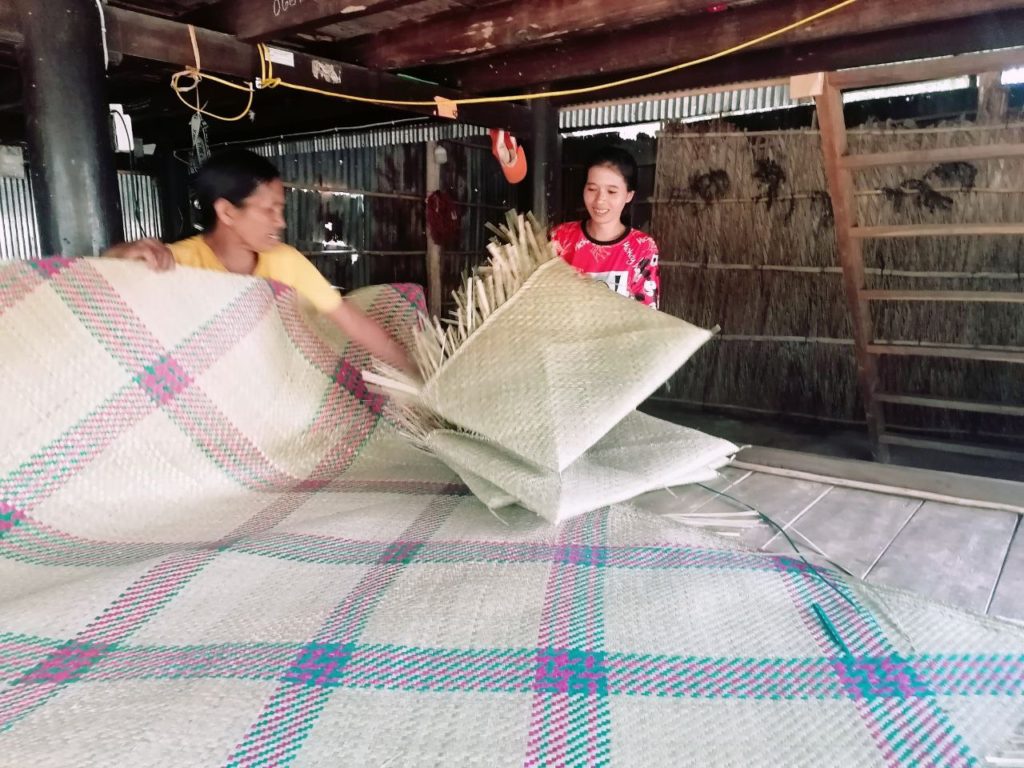
Seang Cha produces biodegradable mats, bags, and disposable straws. Her sector faces the competition of synthetic mats and other products, but her work is much more valuable in facing global problems such as plastic pollution. For example, Seang’s straws are much better than plastic straws that end up in the ocean posing a particular risk to wildlife. Plastic straws’ small size makes them easier for birds, animals, and larger fish to ingest and are particularly dangerous. According to the UN, every year 19-23 million tonnes of plastic waste leaks into aquatic ecosystems, polluting lakes, rivers, and seas. [1]
Plastic is not only harmful to the environment but also to our health. Therefore, Seang Cha and her neighbours and friends’ production in the village has a strong competitive advantage in the market. Straw products are not only trendy, graceful, and elegant in today’s day and age. Ethical and sustainable bags are becoming all the rage around the world! They constitute a perfect environmentally safe item for the joy of responsible shoppers and eco-tourists.
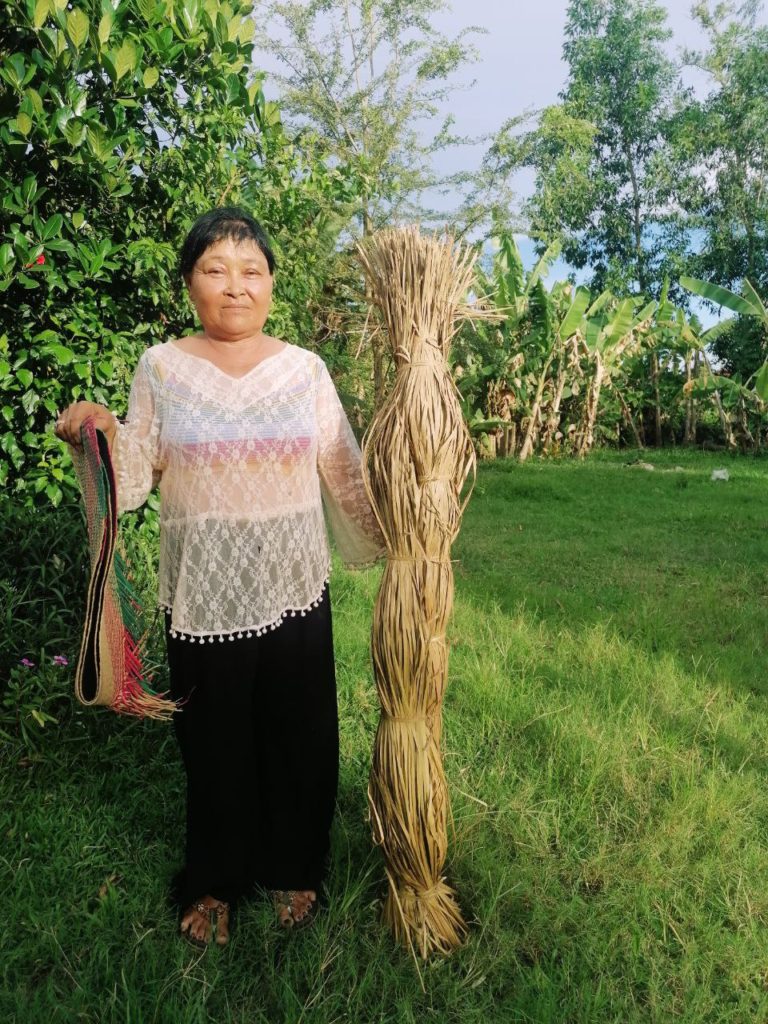
Khmer traditional mats are perfect on a picnic in natural surroundings or at the beach. They are typically made of materials that do no harm to the natural environment and exclude the use of harmful chemicals. For people who are conscious and care about our planet and its people, Cambodian women offer the option of a sustainable choice and a more earth-friendly approach to shopping.
Seang Cha’s creations are neat, structured, and colorful. Handmade weaving requires knowledge, skills, and time. It is fundamental to ensure the younger generations of Cambodians learn and perpetuate this precious practice inherited from their ancestors. Kampot women hold a precious solution in their hands. To contribute to global efforts to combat climate change, they should disseminate their expertise to the world and teach us how to live sustainably.
[1] UN Environment program, Plastic pollution, https://www.unep.org/plastic-pollution



